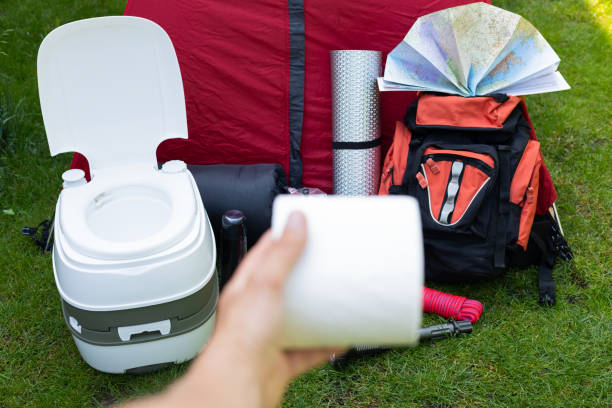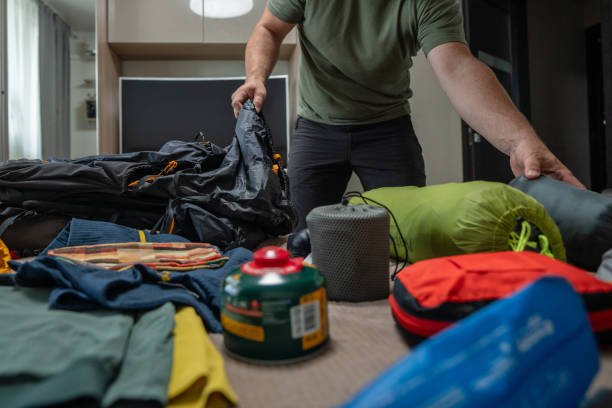Camping is an exhilarating way to connect with nature, escape the hustle and bustle of daily life, and create lasting memories with friends and family. However, a successful camping trip requires careful planning and preparation. In this comprehensive guide, we’ll explore the essential steps to prepare for your camping adventure from the comfort of your home, ensuring that you’re fully equipped and ready to make the most of your outdoor experience.
The Importance of Proper Preparation
Enhancing Your Camping Experience
Thorough preparation is key to ensuring a smooth and enjoyable camping trip. By taking the time to plan and organize your gear, meals, and activities in advance, you’ll be able to focus on immersing yourself in nature and creating unforgettable memories rather than worrying about forgotten essentials or unexpected challenges.
Safety and Comfort
Proper preparation also plays a crucial role in ensuring your safety and comfort during your camping trip. By anticipating potential weather conditions, terrain challenges, and environmental factors, you can pack appropriate gear and supplies to keep yourself and your fellow campers safe and comfortable throughout your adventure.
Minimizing Environmental Impact
Responsible camping involves minimizing your impact on the natural environment. Proper preparation allows you to plan for Leave No Trace principles, ensuring that you have the necessary tools and knowledge to preserve the beauty of your campsite for future generations to enjoy.

Preparing for Camping from Home
1. Research Your Destination
Before embarking on your camping trip, it’s crucial to gather as much information as possible about your chosen destination. This research will help you make informed decisions about gear, supplies, and activities, ensuring that you’re well-prepared for the specific conditions and challenges you may encounter.
- Research the climate and weather patterns for your camping dates
- Familiarize yourself with the terrain and any potential hazards
- Investigate local wildlife and any necessary precautions
- Check for any permits or reservations required for camping in the area
- Review campground amenities and regulations

2. Create a Comprehensive Packing List
A well-organized packing list is essential for ensuring that you bring all the necessary gear and supplies for your camping trip. Start by creating a master list of camping essentials, then customize it based on your specific destination, planned activities, and the length of your trip.
- Shelter (tent, tarp, or hammock)
- Sleeping gear (sleeping bags, sleeping pads, pillows)
- Clothing and footwear appropriate for the weather and activities
- Cooking equipment and utensils
- Food and water supplies
- First aid kit and emergency supplies
- Navigation tools (maps, compass, GPS)
- Lighting (headlamps, lanterns, flashlights)
- Personal hygiene items
- Entertainment (books, games, binoculars)

3. Plan and Prepare Your Meals
Meal planning is a crucial aspect of camping preparation, as it ensures that you have adequate nutrition and energy throughout your trip. Consider factors such as the length of your trip, available cooking equipment, and any dietary restrictions when planning your meals.
- Create a meal plan for each day of your trip
- Pre-package and label meals for easy organization
- Consider non-perishable and lightweight food options
- Plan for proper food storage to prevent attracting wildlife
- Pack appropriate cooking equipment and utensils

4. Check and Maintain Your Gear
Before your camping trip, it’s essential to inspect and maintain all of your camping gear to ensure that everything is in proper working condition. This step can help prevent unexpected equipment failures and ensure your safety and comfort during your trip.
- Inspect and clean your tent, checking for any tears or damage
- Test and clean your sleeping bags and sleeping pads
- Check the functionality of your camping stove and fuel supply
- Examine and replace batteries in flashlights and other electronic devices
- Verify that your first aid kit is fully stocked and up to date

5. Practice Setting Up Your Campsite
Familiarizing yourself with your camping gear and practicing essential skills at home can save you time and frustration once you arrive at your campsite. This is especially important if you’re new to camping or have recently acquired new equipment.
- Set up your tent in your backyard or living room
- Practice using your camping stove and cooking equipment
- Familiarize yourself with your navigation tools and techniques
- Practice proper food storage techniques, such as hanging bear bags
- Test and adjust your backpack or gear organization system

6. Prepare for Emergency Situations
While no one wants to think about emergencies during a camping trip, it’s essential to be prepared for unexpected situations. Take the time to familiarize yourself with basic wilderness first aid and emergency procedures before your trip.
- Create an emergency contact list and share your itinerary with a trusted friend or family member
- Learn basic wilderness first aid techniques
- Familiarize yourself with the symptoms and treatment of common outdoor ailments, such as hypothermia and heat exhaustion
- Pack a comprehensive first aid kit and emergency supplies
- Research local emergency services and evacuation procedures for your camping area.

7. Plan Your Activities and Itinerary
To make the most of your camping trip, consider planning some activities and creating a loose itinerary. This can help you ensure that you have the necessary gear and supplies for your planned adventures while still allowing for flexibility and spontaneity.
- Research hiking trails, fishing spots, or other points of interest in the area
- Plan age-appropriate activities for children if applicable
- Consider bringing equipment for activities such as kayaking, birdwatching, or stargazing
- Allow for downtime and relaxation in your itinerary
- Be prepared to adjust your plans based on weather conditions or unexpected circumstances

8. Prepare Your Home for Your Absence
Before leaving for your camping trip, take some time to prepare your home for your absence. This will help ensure that everything runs smoothly while you’re away and give you peace of mind during your adventure.
- Arrange for pet care or house-sitting if necessary
- Set timers for lights or use smart home devices to create the appearance of occupancy
- Hold or forward your mail and newspaper delivery
- Unplug non-essential electronics and appliances
- Secure all windows and doors

FAQs (Frequently Asked Questions)
Q: How far in advance should I start preparing for a camping trip?
A: It’s best to start preparing for your camping trip at least two to four weeks in advance, depending on the length and complexity of your trip. This allows ample time for research, gear maintenance, and any necessary purchases or reservations.
Q: What are some essential items that are often forgotten when packing for a camping trip?
A: Some commonly forgotten items include extra batteries, a multi-tool or knife, insect repellent, sunscreen, a first aid kit, and a map of the area. It’s helpful to create a comprehensive packing list to ensure you don’t forget any essentials.
Q: How can I prepare for unexpected weather changes during my camping trip?
A: Pack versatile clothing layers, including waterproof and insulating options. Bring a weather-resistant tent and tarp for additional shelter. Check the weather forecast regularly leading up to your trip and be prepared to adjust your plans if necessary.
Q: What are some easy and nutritious meal ideas for camping?
A: Some simple and nutritious camping meal ideas include oatmeal with dried fruits and nuts, wraps with pre-cooked meats and vegetables, one-pot pasta dishes, and foil-packet meals with fish or lean meats and vegetables. Consider pre-packaging and labeling meals for easy organization.
Q: How can I minimize my environmental impact while camping?
A: Follow Leave No Trace principles by packing out all trash, using biodegradable soap, staying on designated trails, and respecting wildlife. Use reusable containers and utensils, and avoid single-use plastics. Research and follow any specific guidelines for your camping area.
Q: What should I do if I encounter wildlife during my camping trip?
A: Keep a safe distance from wildlife and never feed or approach them. Store food properly in bear-resistant containers or hang food bags away from your campsite. Make noise while hiking to avoid surprising animals. Research local wildlife and any specific precautions for your camping area.
Q: How can I stay clean and maintain personal hygiene while camping?
A: Pack biodegradable soap, hand sanitizer, and wet wipes for quick cleaning. Bring a small towel and washcloth for sponge baths. Use a solar shower or bring extra water for washing. Practice Leave No Trace principles by washing at least 200 feet away from water sources.
Q: What are some fun activities to keep children entertained while camping?
A: Engage children in nature-based activities such as scavenger hunts, birdwatching, or identifying plants and animals. Bring along card games, storytelling materials, or art supplies for downtime. Involve kids in age-appropriate camp tasks like gathering kindling or helping with meal preparation.
Final Words
Preparing for a camping trip from home is an essential step in ensuring a safe, enjoyable, and memorable outdoor experience. By following the comprehensive guide outlined above, you’ll be well-equipped to tackle any challenges that may arise during your camping adventure.
Remember to research your destination thoroughly, create a detailed packing list, plan your meals, maintain your gear, and practice essential camping skills before embarking on your trip. With proper preparation, you can fully immerse yourself in the beauty of nature and create lasting memories with your fellow campers. So, prepare for camping from home, start planning your next camping adventure today, and get ready to experience the great outdoors like never before!









